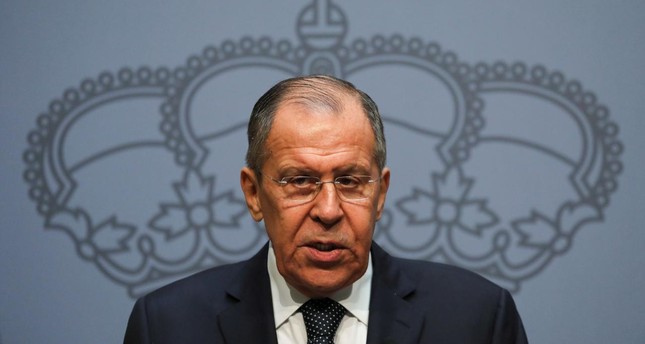Moscow: Russian and U.S. Negotiators will sit down for talks early next year to discuss Moscow’s demand for Western guarantees precluding NATO’s expansion to Ukraine, Russia’s top diplomat said Wednesday.
Foreign Minister Sergey Lavrov said that Russia in January will also start separate talks with NATO to discuss the issue, adding that separate negotiations under the auspices of the Organization for Security and Cooperation in Europe will also be held.
Last week, Moscow submitted draft security documents demanding that NATO deny membership to Ukraine and other former Soviet countries and roll back the alliance’s military deployments in Central and Eastern Europe. Washington and its allies have refused to provide such pledges, but said they are ready for the talks.
Moscow presented the demands amid soaring tensions over a Russian troop buildup near Ukraine that has stoked fears of a possible invasion. U.S. President Joe Biden warned Russian President Vladimir Putin in a conference call earlier this month that Russia will face “severe consequences” if it attacks Ukraine.
Putin has denied having plans to launch an attack but has described NATO’s expansion to Ukraine and weapons deployment of the alliance weapons there as a “red line.”
“We don’t want a war,” Lavrov said Wednesday. “We don’t want to take the path of confrontation. But we will firmly ensure our security using the means we consider necessary.”
Speaking in a live interview with Russian RT television, Lavrov hailed Washington’s “business-like” approach that helped quickly agree on parameters of the future talks.
He added that Moscow would be ready to consider Washington’s demands, but warned that the talks mustn’t drag out indefinitely.
“I hope that they will take us seriously given the moves we take to ensure our defense capability,” he said.
U.S. Secretary of State Antony Blinken said Tuesday that Washington is working with its European allies to address what he called “Russian aggression” with diplomacy but said Biden opposes the kind of guarantees sought by Putin.
“The president has been extremely clear for many, many years about some basic principles that no one is moving back on: the principle that one country does not have the right to change by force the borders of another, that one country does not have the right to dictate the policies of another or to tell that that country with whom they may associate,” Blinken told reporters in Washington. “One country does not have the right to exert a sphere of influence. That notion should be relegated to the dustbin of history.”
Kremlin spokesman Dmitry Peskov also hailed reaching a quick agreement on the start of the talks, but noted that they should be “aimed at reaching concrete results and not become drawn out.” He added that Moscow expects Washington to present a detailed platform for the talks and be ready for a constructive discussion.
“We want these talks,” he said in a conference call with reporters. “And, certainly, the talks are held to discuss each other’s positions.”
AP
